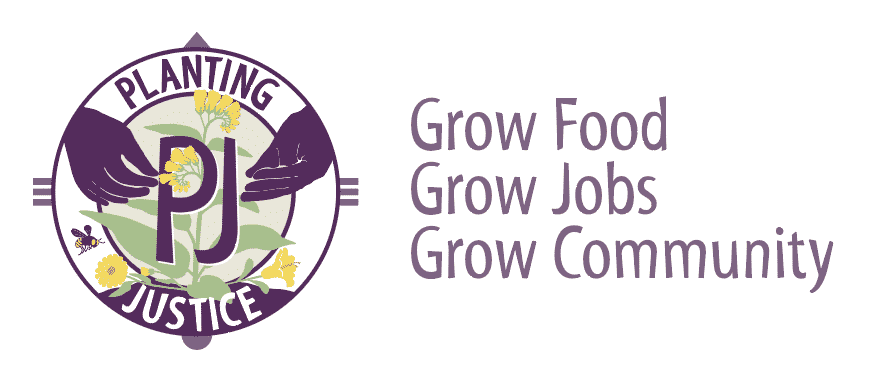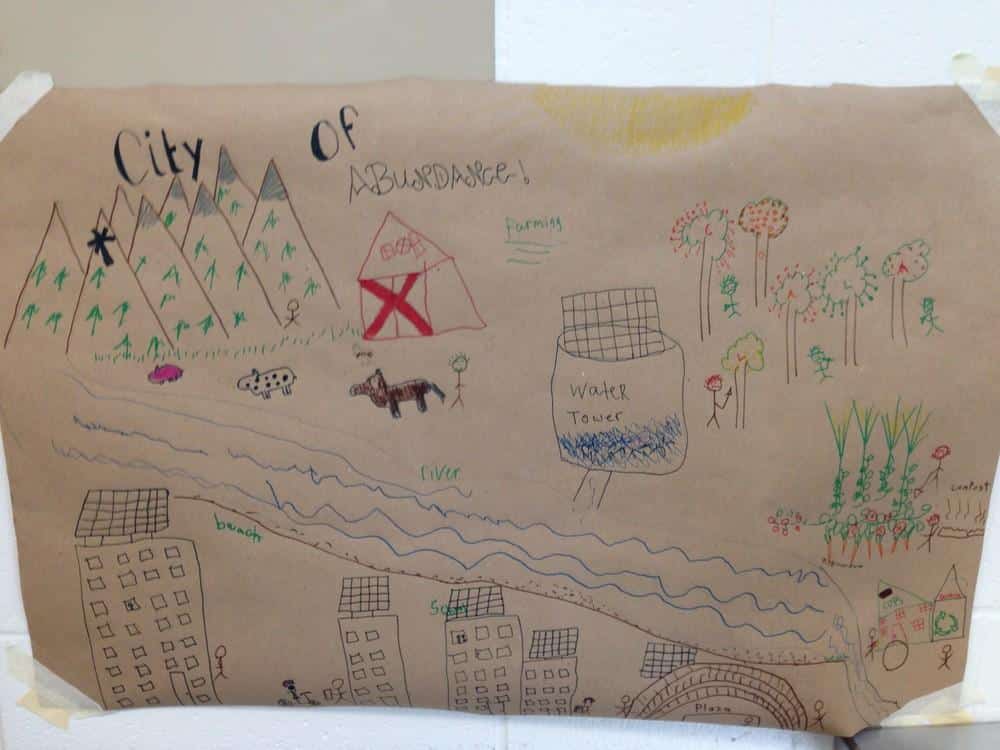

When we came back to the Stanislaus County Juvenile Commitment Center for the first time since our two-day garden build we were eager to be able to teach and learn from the new students we would have. Our day was a sampling of sorts featuring games, activities and culinary arts from three of our dynamic lessons.
We are thankful to Ms. Trask, culinary arts teacher, who helped to get us into her class so that we can be in service and partnership with youth in detention. It is a goal of Planting Justice educators to interact with various communities impacted by poverty, racism and ableism. Youth at the Stanislaus Commitment Center still attend school while incarcerated and with the help of Ms. Trask these youth also are able to learn valuable culinary arts job skills.
We started off with a circle where everyone shared their favorite food or a food they know how to cook. We were surprised to find that a number of students were ambivalent at first about the question; we were even more surprised when it got time for salad eating and everyone happily ate spinach, beets, and fresh cucumber.
After our opening circle we started into a guessing game that highlights the work of young activists who made their big impacts at a young age. Did you know Rosa Parks wasn’t the first black woman to refuse to give up her bus seat? Did you know about the young woman who was first to identify pesticide poisoning in farmworker families at the UFW? We were so impressed when students were able to decipher what it means to be an activist. This game was specially selected for these young men because it is empowering to see other young people acting in resistance to community oppression. The young men in our class worked together and used process of elimination and clues to guess all the people in our game correctly.
Here’s our lesson plan for you to use: Intro to Activism — YoungActivistMatchinGame.
Following our activist game we launched into our Intro to Permaculture activity where we designed our own sustainable cities. We discussed what it means to be sustainable and what needs to be included to nourish a community. Some highlights were hunting in one community, trade with neighboring communities, horses and bike transportation, wind and water power. Students really got into the artistic element of this activity! One team even had a park on top of a school.
We wrapped up our time having a salad dressing making competition. Students weren’t allowed to use knives but they followed the different salad dressing recipes measuring and mixing ingredients. Then everyone got to try all three salad dressings. We do this activity in solidarity with farm workers and turn to Gloria Anzaldua’s peom Mar de Repollos (sea of cabbages). We read the poem in English and Spanish thanks to some bilingual staff. We discussed the images in the literature and what they mean. We discussed the important and hard work of the farmworkers. While these guys might be locked up, they are powerful and kind young men with so much potential and ability. We hope to continue to go inside at Stanislaus and continue exposing students to their own power and the world that needs them!
Oh and the garden…lets just say us Oakland folks have nice weather, but Modesto has great weather when it comes to food production! 15 eggplants off one plant! Giant squash plants spilling out of beds and crawling across the courtyard, watermelons and the bushiest basil you’ve seen!


0 Comments